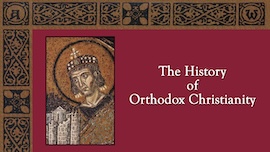Cyril of Alexandria Defended Great Truths, but Was He Just?

Cyril insisted the Virgin Mary was the mother of God.
“THAT ANYONE COULD DOUBT the right of the holy Virgin to be called the ‘Mother of God’ fills with astonishment. Surely she must be the Mother of God if our Lord Jesus Christ is God, and she gave birth to him!” So wrote Cyril the Patriarch of Alexandria.
He had become patriarch on the death of Theophilus, his uncle, who had wielded church power ruthlessly. While charitable to sinners and the poor, Cyril was just as imperious as his uncle in the theological realm. He closed the churches of the Novatians, drove out Jews, and quarreled with the imperial prefect and the philosopher Hypatia. His followers murdered Hypatia and another prefect named Callistus. Cyril suspected anyone who differed from him of being an enemy of God. He soon found an opponent.
Nestorius was a harsh churchman who had become patriarch of Constantinople. Immediately, he preached a sermon against the idea, held by others but theologically fleshed out and promoted by Cyril, that Mary was theotokos, or the Mother of God. While Nestorius admitted that in a sense this was true, he was afraid it could be misunderstood by rank and file Christians so as to give new life to a recently condemned heresy which attributed to Christ one nature only—the divine.
There had been friction between Constantinople and Alexandria for decades. The latter viewed Constantinople as an upstart, rising to prominence three hundred years after Christianity first reached Alexandria. After Nestorius’ challenge, Cyril anathematized him. Nestorius, however, along with John, Patriarch of Antioch, insisted that Cyril had slipped into errors that an earlier church council had condemned. Naturally, John and Nestorius rejected arguments they considered faulty, although reluctantly agreeing to accept the term Mother of God.
Cyril wrote to the Bishop of Rome as a suppliant while Nestorius appealed to Rome as an equal. Rome sided with Cyril, and Cyril soon prevailed on the emperor to call a new council at Ephesus. John’s bishops were delayed through flood, famine, and a breakdown of transportation, and so, although John was president of the council, Cyril took charge despite the objections of many bishops and the emperor’s representative. John sent messengers to ask Cyril to delay for a few days. Instead, Cyril rushed through a condemnation of Nestorius in one day and sent a delegation to John telling him he must break communion with Nestorius.
When John arrived, he opened a legitimate council and excommunicated Cyril. Not sure which council to uphold, the emperor upheld both, exiling Nestorius and imprisoning Cyril. Cyril soon talked his way to freedom, but Antioch broke communion with him for two years. Had the two sides met fairly, a solution such as emerged at Chalcedon might have spared the church half a century of wrangling.
Cyril debated the nature of Christ until he died on this day, 27 June 444.* He is regarded as one of the greatest of eastern theologians for his sweeping synthesis of Christian ideas but, as Nestorius had feared, Cyril’s followers were prone to the belief that Christ had only one nature.
—Dan Graves
*Or possibly 9 June.
----- ------ ------
History of Orthodox Christianity provides more background on Cyril and other Orthodox notables. Watch at RedeemTV.
The History of Orthodox Christianity can be purchased at Christian History Institute






